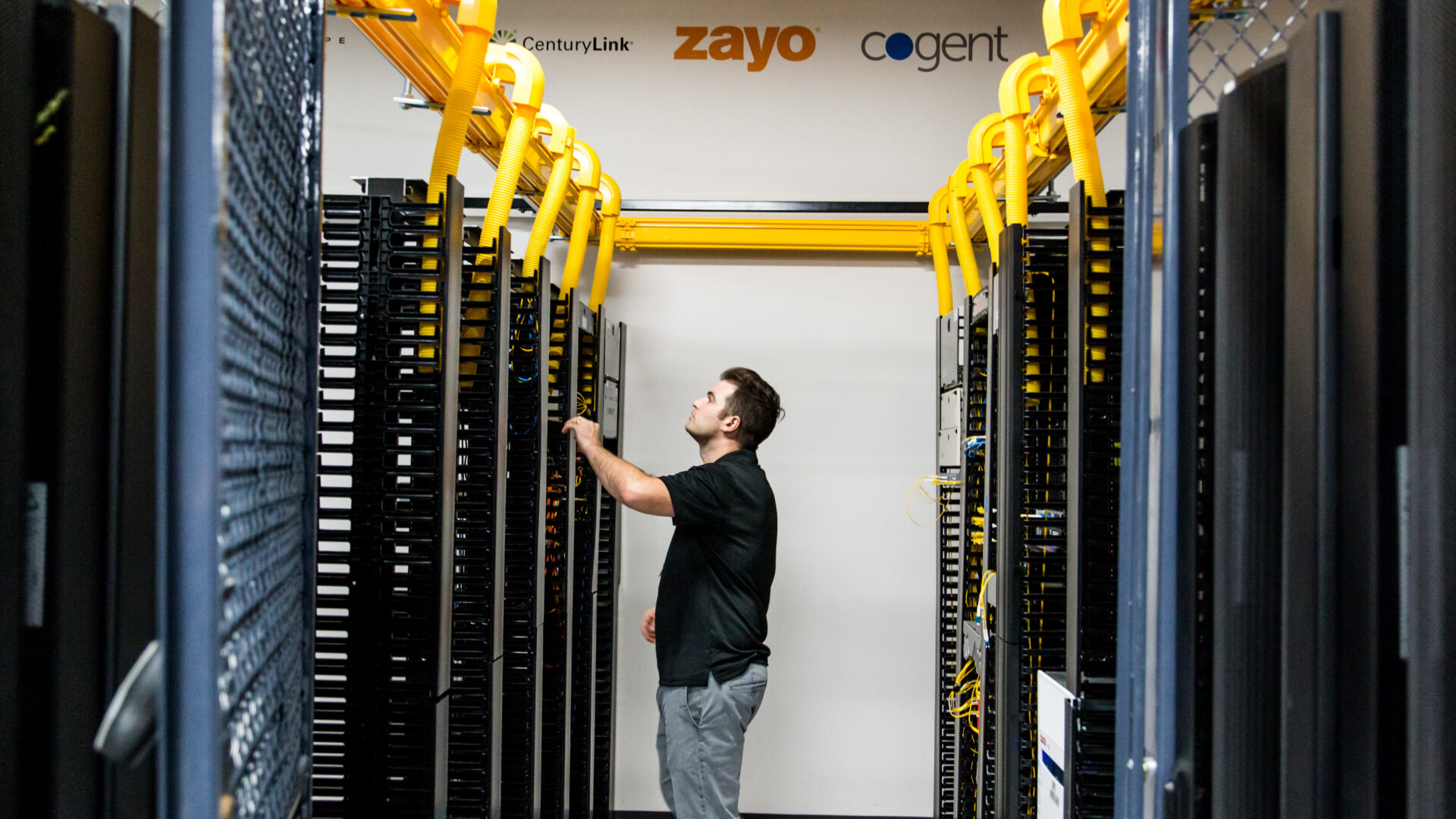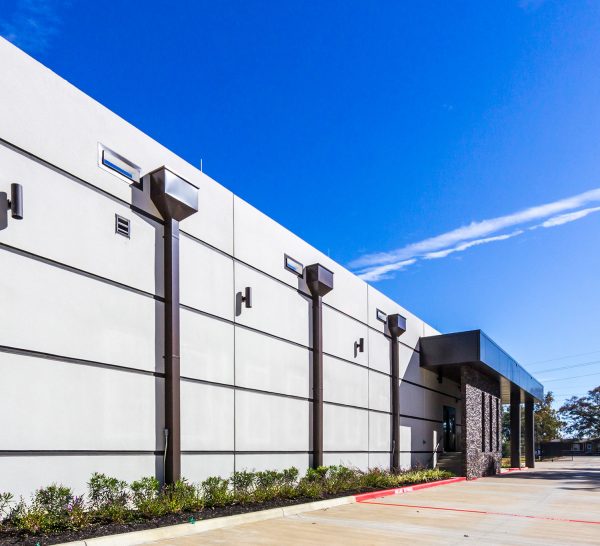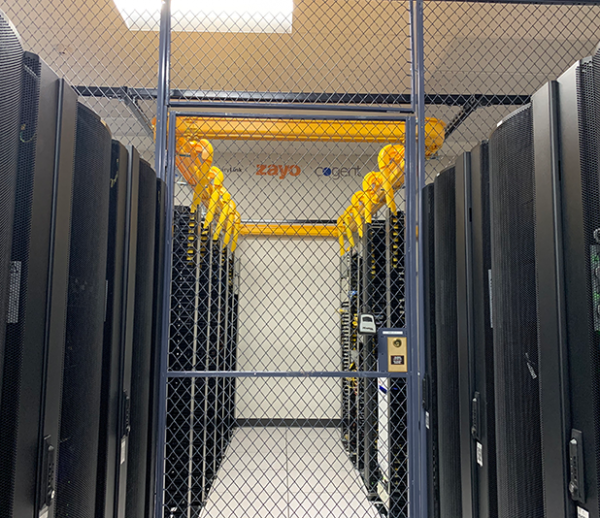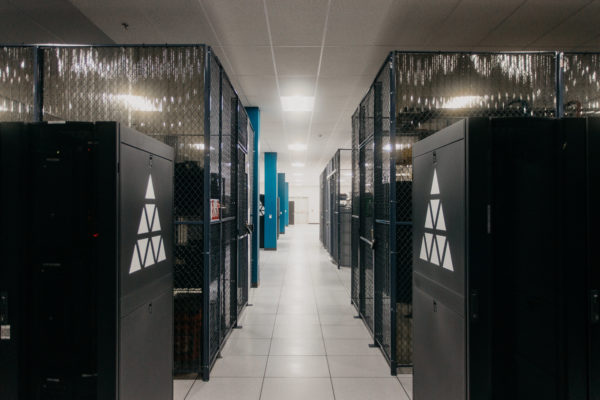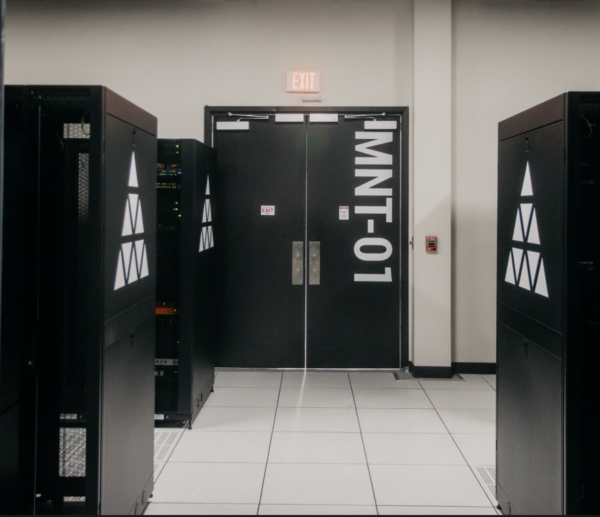At our Houston data center, our colocation customers get the assurance of a physically secure, state-of-the-art building.
However, we also maintain and manage the physical hardware, networking infrastructure, power, cooling, security, and the software that runs on the data center’s servers.
We also take control of numerous processes, tasks, practices, and tools to oversee and ensure the proper handling of our customers’ data. All these tasks are part and parcel of data center management.
In this blog post, we’ll take a detailed look at data center management – what it consists of, the challenges, and what makes it so important to modern enterprises today.
Why is Data Center Management So Important?
Storing vast amounts of data and facilitating critical operations at every moment of every day, data centers are at the heart of modern enterprises.
Data center management is about much more than just keeping these systems running – it’s also about ensuring they run optimally with minimal downtime.
A well-managed data center also optimizes resources, ensuring energy efficiency and reducing operational costs. Furthermore, with cyber-attacks on the rise and threats becoming increasingly sophisticated, robust security measures are crucial to protect sensitive data and safeguard business operations.
As businesses evolve and technology landscapes shift, data center management plays a pivotal role in ensuring agility and scalability. Any business that depends on its data must have strong data management in place to achieve continuity, resilience, and growth.
Data Center Management Challenges
The ongoing and ever-increasing demand for digital services presents unique challenges for data center management. One of the primary concerns is scalability.
As businesses grow and the volume of data expands, data centers need to have the ability to efficiently scale up to handle the increased load. Achieving seamless scalability requires careful planning, infrastructure investment, and regular monitoring to prevent over or under-provisioning.
Minimizing downtime is another significant challenge. Even brief outages can lead to significant financial losses and damage to a company’s reputation. Achieving maximum uptime requires redundant systems, reliable backup solutions, and proactive maintenance to prevent failures.
Data centers often hold sensitive information and are therefore held to strict regulatory standards, which presents another set of challenges. Managers must stay updated on changing regulations, ensure data is securely stored and transmitted, and conduct regular audits to ensure compliance.
Lastly, infrastructure optimization is an ongoing task. Keeping up with rapidly evolving technologies whilst ensuring efficient use of resources and sound management of power and cooling costs is a careful balancing act.
As technology advances and data centers become more complex, the task of ensuring optimal performance while managing costs becomes even more daunting.
Key Components of Data Center Management
There are some elements that are non-negotiable when it comes to data center management. Any data center management plan should include detailed provisions for the following:
- Hardware Management means overseeing physical assets like servers, storage devices, and other crucial infrastructure components. To ensure that the system is robust and that hardware failures are avoided, it’s important to perform regular maintenance, timely upgrades and ensure redundancy.
- Network Management ensures smooth communication between devices and external connections. This encompasses managing switches, routers, load balancers, and performing bandwidth optimization to maintain uninterrupted connectivity. Without proper network management, even the most robust data centers can face bottlenecks or outages, impacting the delivery of services.
- Power and Cooling Management technology are essential for optimal data center operations. Systems generate heat – without effective cooling mechanisms, they risk overheating and failure. Power supply management ensures systems remain operational even during power outages, safeguarding data integrity and uptime.
- Security Management is vital in today’s era of widespread cyber threats. This includes both physical security – like controlled access to the facility – and cybersecurity measures, such as firewalls, intrusion detection systems, and regular security audits.
- Resource Monitoring and Allocation ensures optimal data center performance. By continuously monitoring the use of resources, managers can reallocate or scale resources as needed, ensuring efficient utilization, avoiding overprovisioning, and guaranteeing the best performance for end-users.
Best Practices for Effective Data Center Management
Now let’s dive into data center management best practices.
Regular maintenance and monitoring are the cornerstones of proactive data center management. Regularly scheduled maintenance ensures hardware is in peak condition, while continuous monitoring using state-of-the-art tools can alert managers to potential issues before they escalate, guaranteeing system health and uptime.
Disaster Recovery Planning is crucial. Even with the best preventive measures in place, unexpected events, from cyberattacks to natural disasters, can disrupt operations. Having a comprehensive disaster recovery plan ensures data integrity and swift restoration of services. Regularly testing and updating this plan guarantees its efficacy in times of crisis.
Environmental sustainability is becoming increasingly vital.
Data centers consume significant power, and implementing green practices like using renewable energy sources, optimized cooling systems, and sourcing energy-efficient hardware can significantly reduce the carbon footprint. Beyond the ecological benefits, sustainable practices also often translate to cost savings in the long run.
Finally, staff training and development play critical roles. The technology landscape is ever-evolving, and you must have a team that’s up to date with the latest trends, tools, and security measures if your data center is to stay efficient and secure.
Investing in skill development and having a cohesive training program in place can greatly enhance operational effectiveness and mitigate risk.
How Data Center Management Enhances Colocation
Effective data center management makes all the difference when it comes to colocation. Through meticulous management, colocation providers like us are able to ensure maximum levels of uptime, reducing the risk of business disruptions for their clients.
Certain data center management features and processes make the best colocation services powerful partners to their customers.
Advanced monitoring tools can give clients insights into the performance of their equipment, helping them to make better decisions on resourcing. Furthermore, robust security measures, both physical and cyber, give customers confidence that their valuable data and infrastructure are protected from threats.
Efficient power and cooling management not only safeguard equipment but also lead to cost savings for tenants. Lastly, trained data center staff can give colocation customers technical support and guidance, simplifying and clarifying infrastructure management for them.
All of these features mean that adept data center management greatly increases colocation’s value proposition.
Get More Advice on Data Center Management
Data centers can ensure smooth operations, data integrity, and seamless connectivity – but to achieve this, they must have effective data center management in place.
Our effective data center management means that our clients get maximum uptime and security, the use of always-optimized infrastructure, and the added value of expert guidance at a moment’s notice, 24/7.
Sound data center management is not just a best practice— it’s imperative for businesses that want to thrive in an interconnected, digital world.
Contact us today for more information.
